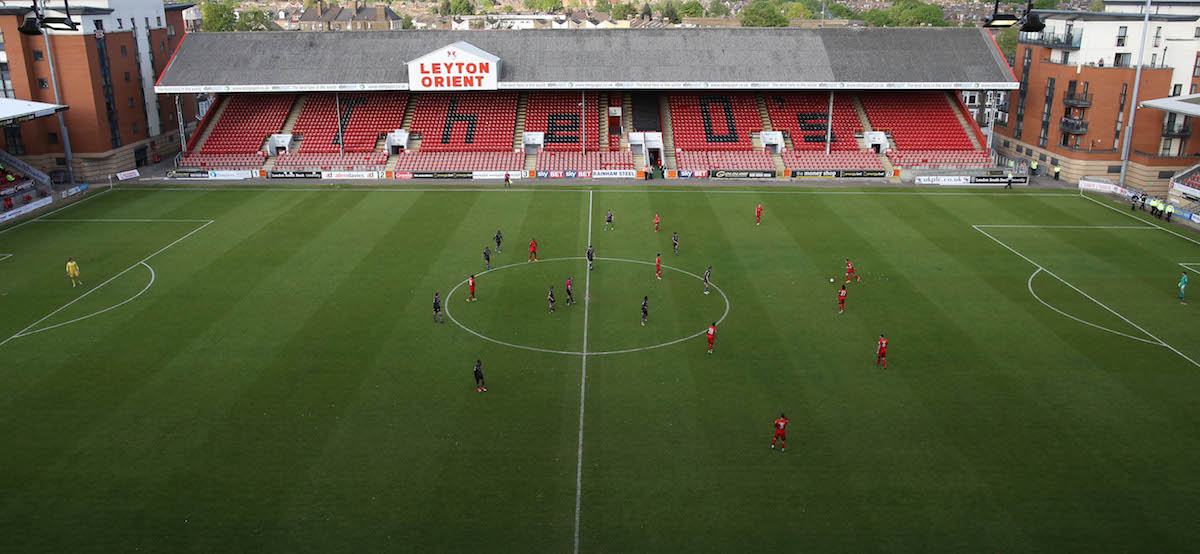A letter from EFL chairman Rick Parry to all clubs in the Championship, League One and League Two received yesterday outlines that if there is any chance of the EFL divisions being concluded, the first ball kicked in anger – and obviously subject to government advice – wouldn’t be until June 1st. That would take the total of weeks without football to 12, just under three months. It feels very strange, but the gap between the end of the domestic season (the play-offs) and the re-start of the following one is normally 10 weeks – and admittedly, this gap is filled by a major international tournament every other summer and there are at least a month of pre-season friendlies.
The plan is to complete the matches in 56 days (eight weeks – so play-off finals concluded by 26th July then to have a shortened gap before the 2020-21 campaign begins, with players maybe getting seven days off before two weeks of ‘pre-season’ training. The reality is that – in terms of their returning to fitness levels, the real pre-season work would be done in the two weeks before the current season resumes, and if players have been doing their prescribed fitness work at home, then it is match fitness which is required. Realistically, that can only be achieved once they start playing again, although there is probably room for a couple of warm up games against local opposition at a training ground in the two weeks’ preparation before the resumption.
The only real concern for player fitness is the possibility of them being shattered by the end of the season given the nature of what the 2020/21 campaign would look like. There are unlikely to be many free midweeks, although it will be interesting to see, should they start on the weekend of 15/16 August, whether or not the League Cup takes place next season. Remember that World Cup qualifiers have to be fitted in as well as a two week break for the teams that have Euro 2021 (formerly Euro 2020) play-offs. It’s certainly likely that the FA Cup could be played in midweek. Of course, there are smaller competitions that EFL clubs take part in which could be sacrificed for a season if required.
There’s no reason why this plan – if it works for the EFL – should not be applied to the Premier League. Same country, a similar number of matches remaining. Arsenal have to play ten times in the league and a possible three FA Cup games. Eight weekends and eight midweeks is a total of slots for 16 fixtures. And remember, there is unlikely to be any need to accommodate supporters in the selection of kick-off times. We have to throw in the UEFA factor here. Manchester City might not be in the Champions League next season, but there are a potential six matches for them to play.
It does look like the plan may be for European countries to complete their domestic seasons first and then for UEFA to gather the Europa League teams and the Champions League teams in two separate areas. So let’s say that domestic seasons need a maximum of 13 fixtures to complete their business, and begin on June 1st behind closed doors. If they were to play twice a week, then the final matchday would be Wednesday July 15th. If those clubs still in Europe then congregated in time for matches the following weekend (If Weds 15th July was the FA Cup Final, it might not even involve the English clubs still in Europe), then the six rounds of matches (outstanding last 16 second legs, quarter finals, semi-finals and finals) could be completed on Wednesday 5th August.
The Premier League could then kick off the following season on the weekend of 29th/30th August – many continental leagues kick off on the last weekend of August anyway.
_______________________________________________________________
The campaign to save The Gooner for the 2020/21 season is in progress. If you wish to see the fanzine continue printing after the end of the current season, details of how to subscribe can be found here. If you wish to order with a credit card, go straight to our online store page here. We need to secure 1,000 subscribers to continue, although the original deadline of 28th March pushed back until we know what will happen with the remainder of the season and can bring out a final issue for the current campaign.
The current issue of The Gooner (282) is on sale from our online store. You can order your copy here (for UK orders) or if you are abroad, order here.








